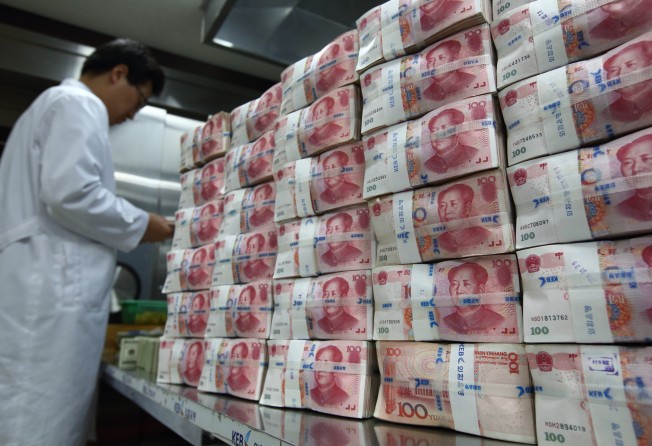China bailout guarantee seen as alive and well despite deposit insurance scheme
“When all financial institutions are government owned, and even shadow banks are bailed out, [it’s] hard to see what deposit insurance means in China’s context,” said Andy Xie, an independent economist

China says it’s phasing out one of its most popular deals: high-return, zero-risk investments.
The central government has kept an unspoken promise to depositors, investors and local governments that no matter how risky or poorly executed a venture, Beijing will bail it out in order to maintain financial and social calm.
The implicit deal has been especially important this year as the economy cools and many corporations and trust companies struggle to pay back loans and investors.
On Sunday, the People’s Bank of China indicated that it might fudge on that generous, long-standing offer. The central bank published a draft of a deposit insurance scheme for banks that would cover up to 500,000 yuan per account.
That is no small explicit guarantee. The PBOC says up to 99.6 per cent of depositors will be covered in the scheme, or nearly 50 trillion yuan.
What the central bank has also hinted with the scheme is that which it does not intend to cover, namely, trust and wealth management products that banks offer to customers as a higher-yielding alternative to deposits. In response, analysts expect a wave of assets from wealth management products to sweep back onto bank balance sheets.
For many investors and local cadres, the notion is somewhat unconvincing that the government would give up on the guarantee. In an environment where the main players are connected to the communist party – if not taking direct orders from the state – it’s hard for some experts to imagine a true unwinding of the mainland’s bailout promise.
“When all financial institutions are government owned, and even shadow banks are bailed out, [it’s] hard to see what deposit insurance means in China’s context,” said Andy Xie, an independent economist.
The government has sent mixed signals on its implicit guarantee this year – but mainly that it will continue to bail everyone out.
When rumours spread in March that Jiangsu Sheyang Rural Commercial Bank was nearing collapse, hordes of panicked depositors got a message from the county governor that explicitly guaranteed their cash.
High-profile default cases have surfaced in the Chinese media this year only to disappear into backroom bailouts organised by the central government.
On the other hand, the State Council has sent strong messages to local governments this year. In October, it threatened to let them fail in the event of a default.
“The current administration is smart enough to know that they can’t continue with the policies of the previous administration,” said Gan Jie, a finance professor at Cheung Kong Graduate School of Business in Beijing, pointing the 4 trillion yuan stimulus package announced by former premier Wen Jiabao in 2008. “At the same time, they know a hard landing is possible and they’re the one who will get blamed.”The central government’s desire to keep corporations afloat has led to some knee-jerk reactions, such as a surprise interest rate cut on November 21 that followed more than 770 billion yuan in cash injections to banks over September and October.
Much of the liquidity that the PBOC has provided will continue to stream into sectors such as steel that are already running at a high overcapacity. The boosts in cash will also refinance loans to ailing firms that would otherwise go belly up.
Measures such as these show the central government is still far from adding the explicit threat of default to the market, even as it looks to putting a deposit insurance scheme in place.
One won’t necessarily supplant the other, noted Chen Long, China economist at Gavekal Dragonomics in Beijing.
“Now there’s going to be an explicit guarantee system but that doesn’t mean the implicit one is gone,” said Chen. “Nothing will happen until there is a real crisis. A major default is how everyone will see that the implicit guarantee is gone.”